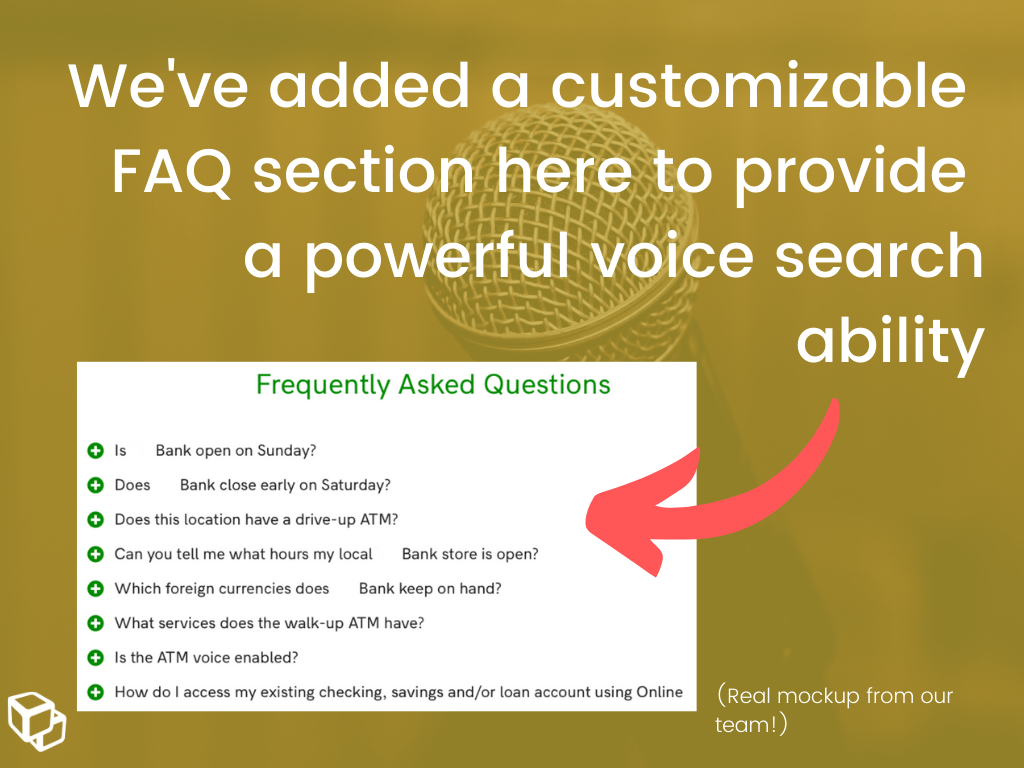
The use of voice search on Google and other search engines alike have become increasingly more popular as their technology and accuracy continues to improve. According to Google's CEO Sundar Pichai, 20% of Google searches that are made are done using voice search; by 2020, it's expected that around half of all queries will be done using voice search or with an assistant. More than 420 million voice assistants (like Siri, Cortana, or Google Home) have been sold - in fact, the use of voice assistants is set to triple over the next few years, according to a new report from the U.K.-based analysts at Juniper Research. The firm estimates there will be 8 billion digital voice assistants in use by 2023.
The increasing use of voice assistants gives the user a plethora of benefits - the ability to multitask activities, enabling them to search and do things faster, empowering them to instantly get results, which overall makes their daily routine easier.
We are rapidly approaching voice-first world. Many people believe that there's not much to do to optimize for voice recognition, however SEO experts agree that optimizing for voice search is an important part of the SEO process to ensure that you don't get left behind in the results.
Optimizing for voice search is important because of the limited amount of results that return when a user searches with voice - the search result that gets shown is called "position 0 (zero)", as it's the only result that gets read out loud and discovered. Everyone is fighting for this position, including you.
However, over-optimization - such as over-saturating the tags, making useless Alexa skills (small interactions like a back and forth conversation), or having a data schema map that is over-optimized can have a negative effect - it can mark your page and result as spam and place you lower on the search results. Therefore, finding the right optimization tactics for your page is important. The following are a few things you can do to continue optimizing content for this rising technology.
1. Keyword Research
The semantics of language are a large part of the optimization for voice searches. When we speak, we tend to use more casual and more natural sounding language, as if we were speaking to someone, versus when we type - which is often structured, grammatically correct (for the most part), and overall more formal. These subtle differences in structure have a detrimental impact however, because casual versus formal language both return different results. This means that question keywords are on the rise, as more people begin to search full questions rather than the general wording of what they're looking for. To help optimize for this, there are SEO tools where you can input a root word and it will output related queries so that you can optimize for the questions that are searched the most with that root word.
As the amount of searches with question words continues to increase, this means that frequently asked question (FAQ) pages are becoming an extremely useful tool in improving SEO. Longer keywords get a higher relevance in the results. In fact, voice search results are 1.7 times more likely to come from an FAQ page than anywhere else, meaning the addition of an FAQ page can provide you with a powerful voice search ability. An example of an FAQ page we had done as a mock-up gave the client a more meaningful voice search ability with a boost to SEO in those results.

2. Site Structure and Content Development
Your site should be structured to help aid your client on their "customer journey" - to do this, mapping questions onto various parts of this journey can act as a leading line to go deeper into your pages. The stages - awareness, interest, evaluation, purchase, customer support, and loyalty - should all be able to be accessed through voice search with these integrated questions.
3. Structured Data Optimization
Voice search only returns the top result. Because of this, you need to make your content as relevant as possible to Google for that query. A schema map of the data that is on your site can have a deep penetration into voice search - these maps communicate to Google what important information is on the page and it uses that data to decide which page to return based on its level of helpfulness (this is where over-optimization can be a negative thing). By submitting your schema map, it helps sort your page into the rankings of relevance to that topic.
4. Alexa/Google Skills
Alexa and Google Home have "skills", which expand the abilities and levels of interaction between you and the assistant, such as interacting with the content or interacting with you (like telling Alexa to play 20 Questions with you). These skills can be extremely beneficial to getting traffic into your website, however avoid creating pointless skills (as it can cause Google to rank your result lower) and focus on creating and improving ones that improve your SEO.
5. Mobile Friendly is Voice Friendly
Optimizing for mobile pages can help boost your SEO results, as optimizing for mobile helps optimize for voice search as well. We are currently in a mobile-first world, so it's not far off that we'll be living in a voice-first world. By using accelerated mobile pages (AMPs), you can improve site speed and layout which in turn will bump your SEO results up.
Optimizing for voice searches on assistants like Alexa and Google Home is an important next step in optimizing your SEO for the future - the goal is to always be future-proof, and continue to improve your pages to fit the algorithms. Although it's daunting that position 0 is the only result that gets read out and everyone is fighting for it, and you don't want to be left behind in the results. Happy optimizing!
